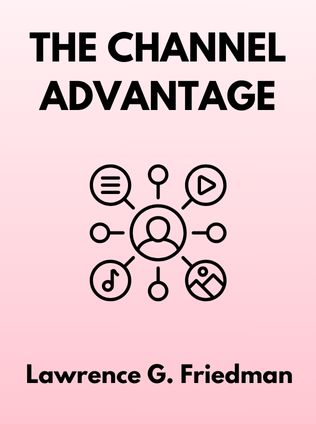
The Channel Advantage
Going to Market with Multiple Sales Channels
By Lawrence G. Friedman,
Published 05/1999
About the Authors
Lawrence G. Friedman and Timothy R. Furey are recognized authorities in the realm of channel strategy. Lawrence G. Friedman, co-author of the bestseller "Getting Partnering Right," is a channel strategy consultant whose clients have included AT&T, Microsoft, and Bell Atlantic. Timothy R. Furey is the CEO of Oxford Associates, a global go-to-market consulting firm. Their combined expertise offers profound insights into how companies can enhance their market presence and performance through strategic channel management.
Main Idea
The core premise of "The Channel Advantage" is that modern companies can no longer rely solely on product differentiation to gain a competitive edge. Instead, the authors argue that businesses must focus on how they reach their customers—leveraging multiple sales channels to optimize market performance. The book explores the strengths and weaknesses of various channels, from sales forces and distributors to direct mail and the Internet, and offers strategies for integrating these channels to maximize revenue growth, market reach, customer loyalty, and profits.
Table of Contents
- Choosing the Right Sales Channels
- The Starting Point: Product-Market Focus
- Aligning Channels with How Customers Buy
- How Product Characteristics Affect Channel Selection
- The Economics of Channel Selection
- Building the Right Sales Channels
- Using the Leveraged Sales Force
- Using Business Partner Channels
- Telechannels and Strategic Call Centers
- The Internet as a Sales Channel
- Managing Channels for High Performance
- Channel Mix and Channel Integration
- Measuring and Managing Channel Performance
Choosing the Right Sales Channels
In today's competitive marketplace, the top-performing companies don't necessarily have better products than their competitors. Instead, they differentiate themselves through their superior use of sales channels. As Friedman and Furey point out, "successful and profitable businesses don't try to compete on the basis of product differentiation. They recognize that a new and improved product no longer yields a long-term advantage." The rapid pace of change means that a product advantage is fleeting. Therefore, businesses must focus on making it easier and more attractive for customers to buy from them through multiple, well-integrated sales channels.
Choosing the right sales channels begins with a thorough understanding of your product-market strategy. Companies should concentrate on deepening their penetration of existing accounts with existing products before exploring new products or markets. This approach is not only cost-effective but also leverages existing customer relationships to drive growth.
"Remember that it's harder and more expensive to get new customers than to retain established customers. It's also harder to sell new products than established products." — Lawrence G. Friedman and Timothy R. Furey
successful channel strategies include:
- Dell Computer: Dell's success is attributed to its innovative use of direct sales channels, including the Internet and call centers, allowing customers to configure and order systems easily.
- Southwest Airlines: By focusing on short-haul, intra-state routes and using less congested airports, Southwest has consistently turned a profit by catering to price-sensitive travelers.
The Starting Point: Product-Market Focus
Before selecting sales channels, companies must evaluate their product-market strategy. This involves determining which products to sell and which markets to target. According to Friedman and Furey, sales growth is more easily achieved within existing accounts than through risky ventures into new markets. They advise against neglecting dormant accounts, which can often yield high returns with minimal effort.
Sign up for FREE and get access to 1,400+ books summaries.
You May Also Like
Rich Dad Poor Dad
What the Rich Teach Their Kids About Money - That the Poor and Middle Class Do Not!
By Robert T. KiyosakiFreakonomics
A Rogue Economist Explores the Hidden Side of Everything
By Steven D. Levitt and Stephen J. DubnerThe Lean Startup
How Today's Entrepreneurs Use Continuous Innovation to Create Radically Successful Businesses
By Eric RiesWho Moved My Cheese?
An Amazing Way to Deal with Change in Your Work and in Your Life
By Spencer Johnson, M.D.Factfulness
Ten Reasons We're Wrong About the World – and Why Things Are Better Than You Think
By Hans RoslingMake Your Bed
Little Things That Can Change Your Life...And Maybe the World
By William H. McRaven



















